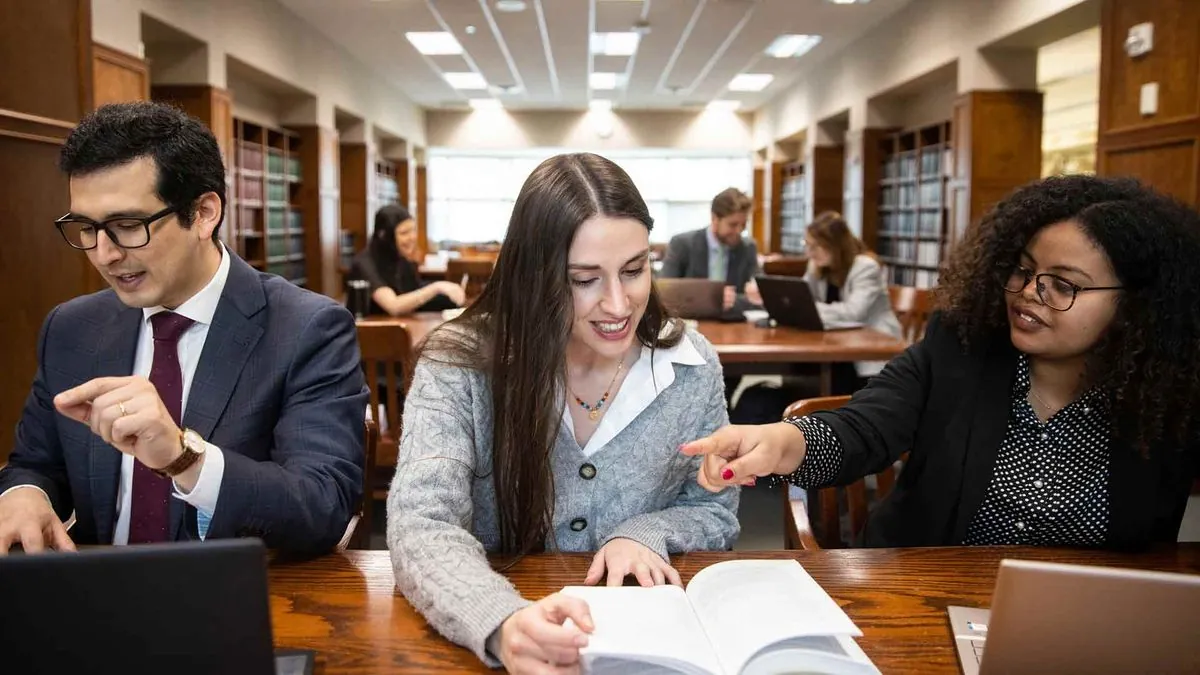UK Law School Introduces Inclusive Language Guide for Trainees
The University of Law has released an online guide advising trainee lawyers on inclusive language use. The initiative aims to prepare students for diverse clientele and foster respectful professional relationships.

The University of Law, the UK's largest provider of legal education, has recently introduced an online guide focusing on inclusive language for trainee lawyers. This initiative, launched on September 11, 2024, aims to prepare future legal professionals for a diverse clientele and foster respectful relationships in the workplace.
The guide, titled "Inclusive language guide for law," emphasizes the importance of using language that avoids excluding or marginalizing individuals based on various characteristics. These include age, disability, gender, sexual orientation, ethnicity, religion, wellbeing, caring responsibilities, and socioeconomic status.
University of Law officials state that the guide is designed to help students ensure their language is "not only clear and legally solid, but also inclusive." The institution, with origins dating back to 1876, has taken this step as part of a broader trend in legal education worldwide to incorporate diversity and inclusion training into curricula.
The guide provides specific examples of non-inclusive language to avoid, such as "manpower," "housewife," and "falling on deaf ears." It suggests that students find more appropriate and inclusive alternatives for these terms. This approach aligns with the ongoing evolution of language in legal documents, which has historically been formal and sometimes archaic.

Interestingly, the phrase "falling on deaf ears," which the guide advises against, has origins dating back to the 16th century. Similarly, terms like "manpower" and "policeman" have been increasingly replaced by gender-neutral alternatives like "workforce" and "police officer" in official usage.
The guide also encourages students to challenge non-inclusive language when they encounter it, stating, "Don't be afraid to suggest a change." This proactive approach reflects the legal profession's efforts to address past criticisms regarding lack of diversity and inclusivity.
It's worth noting that the use of pronouns in legal documents has been a topic of debate in recent years. The University of Law's guide instructs trainee barristers and solicitors to avoid using pronouns in legal documents, aligning with the increasing use of gender-neutral language in legal writing.
This initiative by the University of Law is part of a broader trend in various professional fields to adopt inclusive language guides. These efforts have roots in the civil rights and feminist movements of the 20th century and continue to evolve as society becomes more aware of the power of language in shaping perceptions and experiences.
By embracing inclusive language, the University of Law aims to better prepare its students to represent a wide range of clients and build respectful relationships with everyone they encounter in their professional lives. This approach not only reflects changing societal norms but also contributes to the ongoing efforts to improve accessibility and inclusivity in the legal profession.
"If you're hoping to work in the profession you'll need to ensure the language you use is not only clear and legally solid, but also inclusive."
As the legal profession continues to evolve, initiatives like this inclusive language guide play a crucial role in shaping the next generation of legal professionals, ensuring they are well-equipped to serve a diverse society with respect and understanding.


































